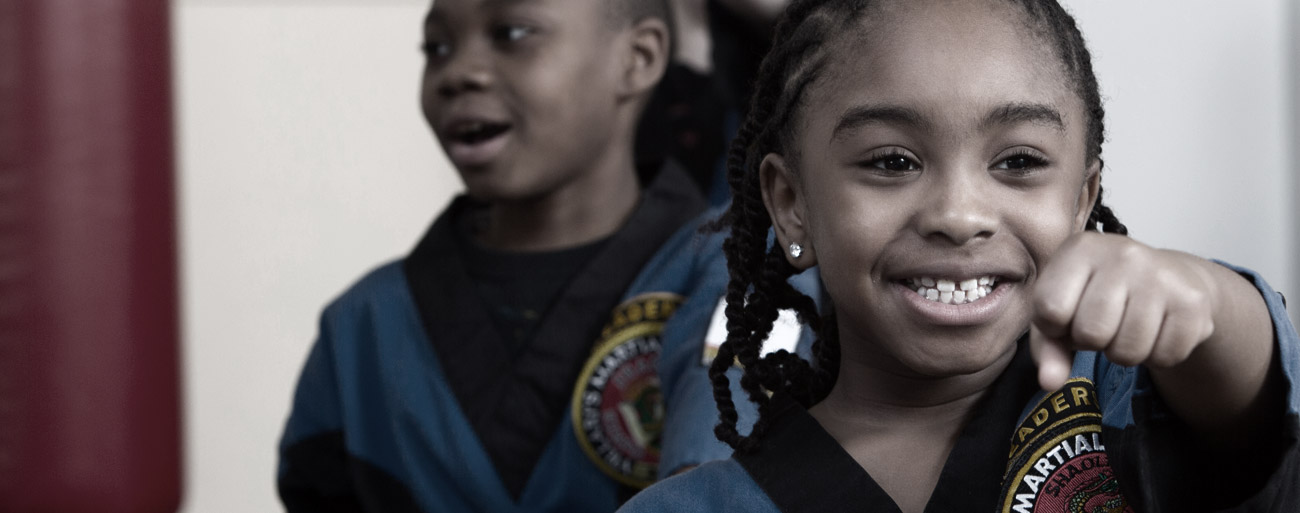12 Tips for Raising Honest Kids
March 4th, 2021
by: Charity Ferreira

Brace yourself for the cold, hard truth: all kids lie. They do it for many of the same reasons adults do: to avoid getting into trouble, to avoid hurting another person’s feelings, or to make themselves look better. The ability to tell a lie develops early — as young as 2 1/2 for some kids — and it’s a normal and important stage of kids’ cognitive and social development. By age 4, all kids lie; by age 6, some estimates are that kids lie as often as once an hour. (And if you’re thinking, ‘Not my kid!’ note that research shows parents score little better than chance in determining whether or not their child is telling a lie!)
How can you convey to your preschooler the difference between the truth and the whoppers she tells you about her day? Or teach your elementary school-aged child that it’s better to come clean about having made a mistake? Or get your teen to be honest with you about where they were on Friday night? We asked experts — researchers, child development specialists, and psychologists — for their advice on teaching kids the value of honesty at every stage.
 Model honesty
Model honesty
It sounds obvious, but if you don’t want your kids to lie to you, don’t lie to them, and don’t let them hear you telling lies. “It’s one thing to say to kids that honesty is important, but then if they see you lying, it sends a mixed message,” says Victoria Talwar, associate professor in the Department of Educational and Counseling Psychology at McGill University in Montreal and a leading researcher on kids and lying.
It’s surely less effort to say, “I don’t have any money with me” than to explain to your child that they can’t have ice cream because they’ve already had a sweet treat that day or because it’s too close to dinner. Or to tell the fundraiser on the phone that you aren’t interested in donating rather than saying you already did. But over time, so-called “little white lies” teach your child that dishonesty is okay in some situations — and leaves them to interpret which situations those are. If you want your child to grow up with the belief that honesty is the best policy, do your best to live by that credo, too.
 Don’t set them up
Don’t set them up
Particularly for preschool-aged kids, one way to deter lying is simply by not inviting them to. When you see your child with a juice-stained lip and an overturned bottle on the table, there’s no need to ask, “Did you spill this juice?” Kids this age will lie out of a desire to avoid getting into trouble, says Dr. Peter Stavinoha, a clinical neuropsychologist for the Center for Pediatric Psychiatry at Children’s Medical Center of Dallas. ”If you know they did it, don’t ask! If you ask, you’re giving them the option to lie. So they lie, and then you get upset about that, and now there are two things where there used to be only one,” Stavinoha says.
“Looks like you spilled some juice. Let’s clean it up together,” keeps things focused on the issue at hand. And if you’re not sure who broke the vase, or which sibling is lying about it, Stavinoha says, go straight to the consequence. “Don’t engage with the question of did they break it or which child broke it. Focus on what you want accomplished. ‘We have a mess here. I’m asking you both to clean it up.’ You’re showing them that there’s no positive consequence for denying responsibility.”
 Tell positive stories
Tell positive stories
In a study led by University of Toronto psychologist Kang Lee, researchers including Talwar found that kids ages 3 to 7 who heard the story of George Washington and the Cherry Tree, which illustrates a positive consequence of honesty (George is praised for telling the truth), were much more likely to tell the truth than kids who heard the story of the Boy Who Cried Wolf, which illustrates a negative consequence of lying (the shepherd repeatedly calls for help as a prank, but the one time he really needs help, the villagers don’t come to his rescue).
“We talk about lying being bad, but we don’t highlight the alternative behavior. Kids need examples for how to behave in situations where lying might be easier, stories that show how to be honest, what does that look like? Those are important messages,” says Talwar. For older kids, talking about the honesty of the characters in the books they’re reading can provoke inspiring and instructive discussion.
 Ask for a promise
Ask for a promise
If you need a straight answer about something you’re concerned about, such as an incident at school, asking your child to promise to tell you the truth before asking them a question increases the chances that they will, studies suggest. But note that this strategy is not a guarantee, and it should be used sparingly so that you don’t wear it out. “You don’t want to overuse this one or it may lose its efficacy,” says Angela Crossman, professor, and chair of the Department of Psychology at the John Jay College of Criminal Justice at City University of New York. And as Talwar notes, promises tend to feel more binding to younger kids.
 Say truth-telling makes you happy
Say truth-telling makes you happy
Young children, under the age of 8 or so, are very motivated to please authority figures, says Talwar. Her research shows that telling kids that you’ll be happy with them if they tell the truth increases the likelihood they’ll be straight with you. Tweens and teens, she notes, tend to care somewhat less about pleasing authority figures and more about their own internal sense of what’s right. (Another study found that telling 9- to 11-year-olds that they would feel good about themselves if they told the truth decreased the chances they would tell a lie.) At all ages, look for opportunities to make your child feel good about being trustworthy.
 Teach tact
Teach tact
Kids learn early — from their parents — how to lie for the sake of politeness or to avoid hurting someone’s feelings. “Thanks, this book looks great,” instead of, “I already have this book!” or “I can’t play because I’m busy,” instead of “I don’t like playing with you!” Researchers call these kinds of lies “prosocial” because they smooth our interactions with others. But being honest does not have to equal being rude or hurtful. The key, says Talwar, is to balance honesty with consideration for the other person’s feelings. “We want to teach our children to be honest but we want to teach them to be kind as well. We need to teach honesty in a way that potentially helps others rather than potentially hurts others,” says Talwar. In the case of the book, this might mean saying it’s an author they like or expressing appreciation for the thought that went into choosing it.
 Don’t reward the lie
Don’t reward the lie
When your child lies, there’s a reason — they’re seeking something. And if they get it, that can reinforce lying as an effective strategy. So if you notice that your younger child always fabricates a story about getting hurt at school as soon as your older child starts telling you about their day, it might be an attention-seeking behavior. “When a child lies, figure out what dynamic may be going on,” suggests Crossman. “Are there ways you can ignore the lie so they don’t get the reward? Can they get what they’re wanting in some other way?”
 Catch them being honest
Catch them being honest
We often catch kids in lies, says Talwar, but if we want to teach them to value honesty, we need to look for opportunities to acknowledge when they tell the truth, especially in situations where it might have been easier for them to lie. When your child tells you the truth about something they’ve done, take a moment to show that you appreciate their honesty by saying, “I’m really glad you told me the truth.”
 Discipline calmly
Discipline calmly
In environments where punishments are doled out harshly and arbitrarily, research shows that kids learn to lie earlier and more skillfully than their counterparts in less punitive environments. That doesn’t mean you shouldn’t discipline. But in an atmosphere with a punitive, authoritarian approach to discipline, developing the ability to lie can be seen as a protective measure.
“One thing parents can do is simply not have a great big emotional reaction. The more explosive the parent gets, the more frightened the child gets, and the more likely they are to lie. Simply remaining calm and sticking to the facts you’ve observed is one way to get kids to tell the truth,” says Stavinoha.
 Have a conversation, not a lecture
Have a conversation, not a lecture
The more open and conversational the relationship between parent and teen, the more effective, says Dr. John Duffy, clinical psychologist and author of the best-selling The Available Parent: Radical Optimism for Raising Teens and Tweens. “That means more discussing and less lecturing.” When clashes happen, waiting for the situation to abate and approaching your teenager calmly is always going to yield a more positive outcome, he says. And when it comes to raising truthful teens, he recommends discussing issues of honesty and lying openly with your child. “Something along the lines of, ‘We want you to feel free to be honest with us, regardless of what you have to say.’ Teens respond well to this type of communication, but parents have to be prepared for the honesty!”
 Set clear rules
Set clear rules
Ninety-eight percent of teenagers worldwide lie to their parents. That’s the conclusion of Dr. Nancy Darling, professor and chair of the Department of Psychology at Oberlin College, who has researched teens and honesty for two decades. Darling says setting clear rules is important for cultivating an honest relationship with teens — and that being strict is okay. However, she says, it’s essential that parents pair this with being emotionally warm and open and accepting, so teens don’t think they will be harshly and unjustly punished.
“If you balance these two aspects of parenting clearly, your teenagers will be more likely to ask for your permission and more likely to confess if they have broken a rule. They need to respect you and believe you will be warm, accepting, and non-punitive,” she says. “If kids think you have the right to set rules, if they respect you, they are more likely to be truthful — but they’ll still want to argue with you about what is safe and what they should be allowed to do.”
 Give them space
Give them space
Respecting teens’ natural desire for privacy can encourage more honesty, Darling says. “You don’t want to be intrusive, you don’t want to get into their business more than you need to,” she cautions. “Ask for only the information you need. If you do that, they will probably provide additional information.” For example, you need to know your teen was safely at a friend’s house on Friday night; you don’t need to know what they talked about. Prying too deeply is asking for teens to push back by putting up barriers or lying, Darling says. So keep it on a need-to-know basis, and if they still clam up, just explain, “You don’t want me to butt into your business, and I don’t want to butt into your business but I have to know because …” and tell them why you need an honest answer.





